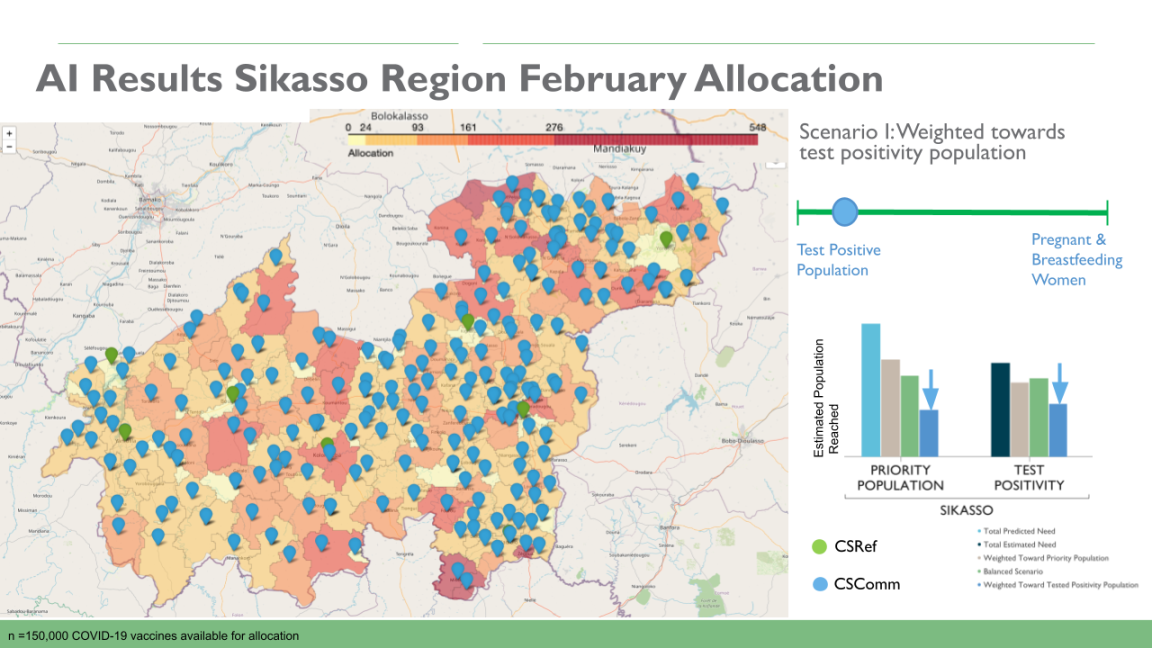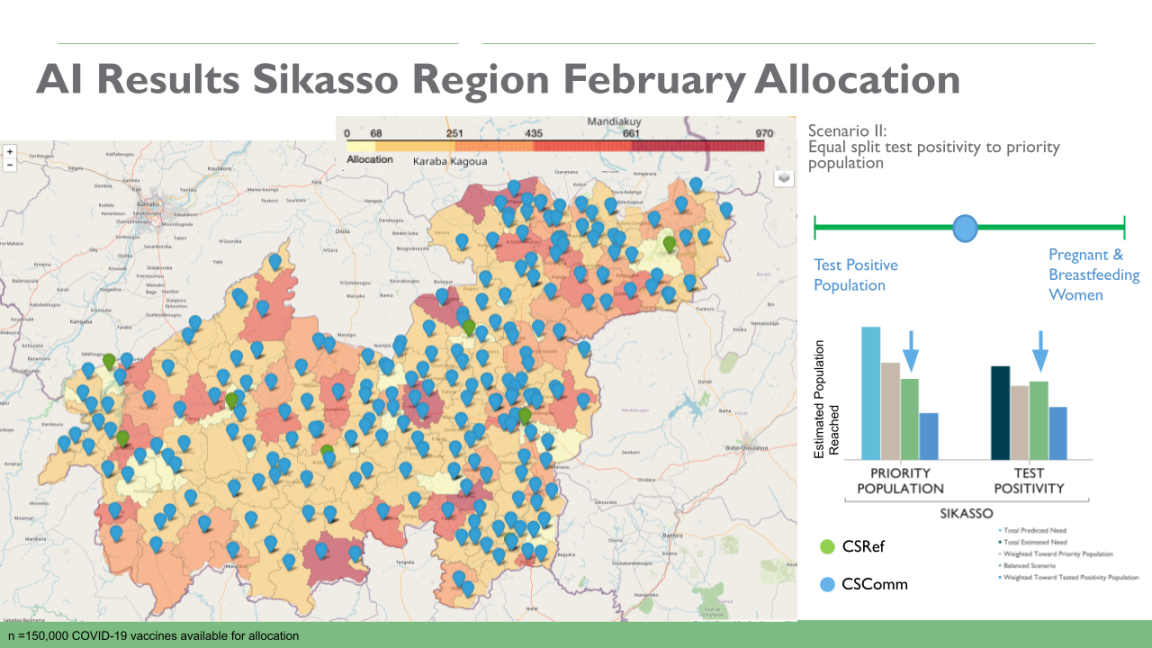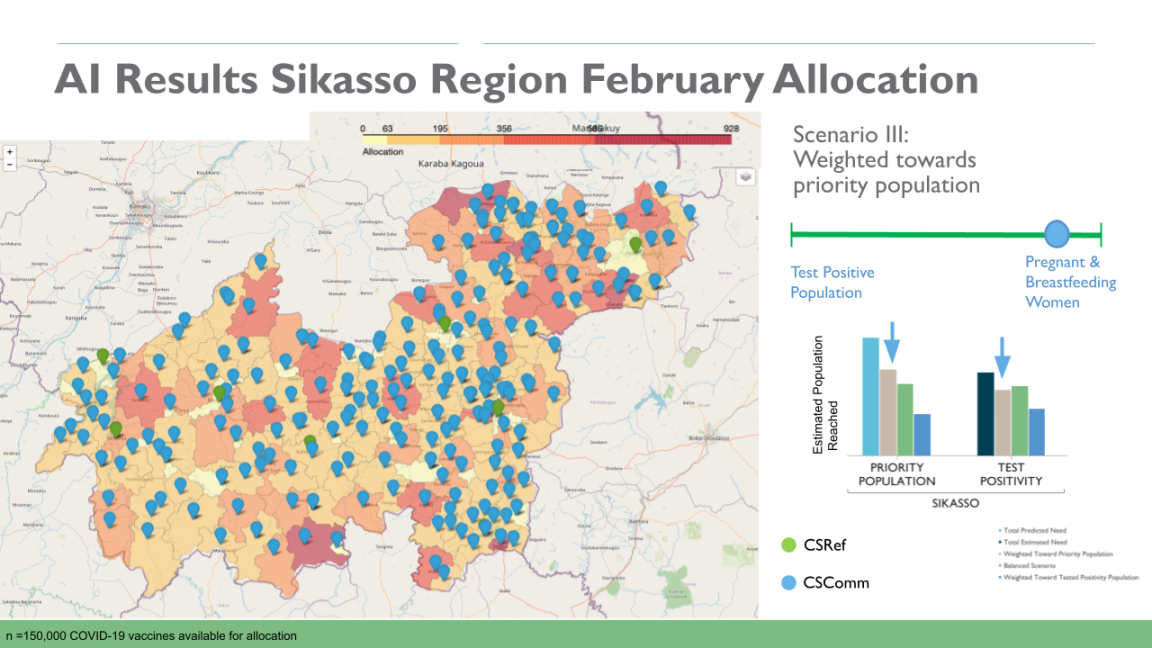In Mali, traditional methods of data analysis have been helpful in understanding the COVID-19 situation on the ground at the time the data were collected. But these methods only help with creating reactive programming—which is often expensive and comes too late for the hardest hit populations. That’s why CHISU is exploring the use of artificial intelligence (AI) to facilitate more proactive programming and improve Mali’s response to COVID-19 and future health emergencies.
The use of AI in public health data analytics represents a shift to a predictive approach to programming, and one which hopes to optimize resource allocation in order to meet the greatest need for health services. Government decision makers and program implementers in Mali and elsewhere can use already available routine data in national databases (such as the District Health Information Systems 2, also known as DHIS2) to run AI models forecasting when and where the greatest need will be, and then allocate resources accordingly.
Considering this analytical shift, the CHISU team developed an AI prototype designed to solve two challenges in Mali: 1) how to allocate COVID-19 vaccines with multiple strategies in mind, and 2) where to send COVID-19 vaccines to reach the largest number of at-risk people, maximizing efforts in real time.
The model estimated the COVID-19 percent positivity of a catchment population using COVID-19 surveillance data from 2020 to 2023 and the percent positivity rate at the regional level. It also estimated the four-month forecast of total pregnant and breastfeeding women who will visit clinics in the catchment region using 2016 to 2022 data from pregnant (Td1 and Td2) and breastfeeding women (infant immunization data). All data was extracted from DHIS2. From this, AI prototype users can weight resource allocation based on either COVID-19 case hotspots or on the concentration of pregnant and breastfeeding women. Using a model such as this will allow decision makers to allocate COVID-19 vaccinations to priority areas and reduce waste and missed opportunities for vaccination.



While the AI prototype CHISU created in Mali was based on COVID-19 data, similar models can be useful tools for many other health areas, such as malaria, routine immunizations, and family planning. With the ability to be updated in real-time as new data are inputted into databases, this tool can help decision makers be better prepared to rapidly respond to changing priorities in the field.
“Artificial intelligence is an important new tool in the Ministry of Health’s data analysis toolbox,” noted CHISU Resident Advisor in Mali, Dr. Madina Kouyate. “AI can help the Ministry of Health enhance data; diagnose data quality; identify bottlenecks, problematic processes, areas for improvement in interventions; and identify possible biases in the data in order to better plan activities and meet the most important needs in real time by relying on the latest technologies,” she added.